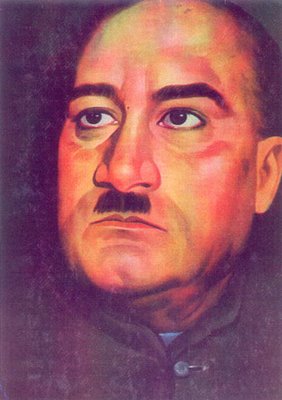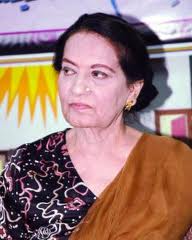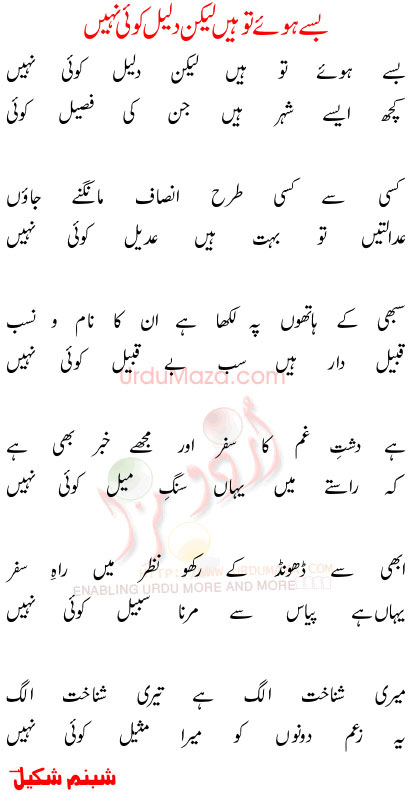|
He argued that this has many reasons, foremost of which is that when he was alive, his detractors (a majority of whom were not from the world of literature) left no stone unturned in maligning his character and discovering elements in his poetry that had nothing to do with him. As a result, Josh often became a victim of state oppression and was sidelined from literary circles.
Peerzada Salman went on to say, Josh sahib was a straight-shooter, was known for calling a spade a spade, and seldom entertained mediocrity, which, of course never helped. Once President General Ayub Khan, while trying to flatter Josh sahib, said to him that he was a great alam. To this the poet immediately replied that the right word is alim (scholar), not alam. This made Ayub cringe and he gave orders that the cement agency that Josh sahib ran be shut down. And it happened.
Josh Malihabadi’s famous autobiography, Yadon Ki Barat, despite being hailed by critics as a masterpiece, upset some from the moral brigade. Therefore, a poet who had unparalleled command over the Urdu language, and whose nazms and rubaiyat were celebrated as modern-day classics, was sidelined. It eventually turned him into an under-discussed literary genius.
Josh Malihabadi's grand-daughter Tabassum Akhlaq has carried over the legacy of his poetry. Josh Memorial Committee was formed in 1986 by Tabassum Akhlaq and she is the current chairperson as well. The committee organizes seminars on the personality, history and literary work of Josh Malihabadi. These seminars are usually held on the birthday and death anniversary of Josh Malihabadi on 5th December and 22nd Februaury respectively.
In August 2012, Government of Pakistan announced Hilal-e-Pakistan for Josh Malihabadi. This award was presented to Tabassum Akhlaq President Asif Ali Zardari in a ceremony held in Presidency on Pakistan Day 23rd March, 2013. While in India, Josh was honored with the Padma Bhushan in 1954.
Shabnam Shakeel
The second session of the literary gathering was dedicated to a prominent poetess, Shabnam Shakeel. 
As usual, Urdu enthusiasts read Shabnam’s poetry which included: Hatim Rani, Irshad Khan, Jafar Shah, Kamal Sahney, Meraj Sultana Ghazali, Nagesh Avadhany, Naseer Humayun, Sarwat Jahan, Shan Saigal, Tasadduq Attari, Talat Khan and Abdus Sattar Ghazali
Poet Arshad Rashid presented a well researched maqala on the life and work of Shabnam Shakeel who expired about two months back in March this year.
Shabnam was born on March 12, 1942 in Lahore. Her father Syed Abid Ali Abid was a poet and academician and thus she was given the opportunity to grow up in a literary environment and was exposed to notable people such as Ghulam Mustafa Tabassum, Faiz Ahmad Faiz, Professor Nazeer Ahmed, Dr Syed Abdullah, Dr Taseer, and other luminaries of the day.
She was student at Kinnaird College and graduated from Islamia College, both in Lahore. She received a Master of Arts in Urdu literature from Oriental College, Lahore.
During her career she worked as a lecturer at several colleges in Pakistan. Her first book Tanqeedi Mazameen, was published in 1965. Some of her other published poetry collections were Shabzaad (1987), Izteraab (1994), Taqreeb Kuch Tau (2003) and Musafat Raigan Thi (2008).
She won numerous awards, honors and titles for her contributions to Urdu literature including the prestigious Presidents' Pride of Performance award in 2004.
Shabnam was a great motivator of female writers and poets and her sublime thought is a clear reflection that female writers and poets have not only complemented Urdu literature by bringing in feminist themes and ideas but have also added new subjects and feelings to it. Endowed with a rare intellect and transcendental vision, her classic reflection on her eldest son ‘Waqar’ has made every soul spellbound; ‘Kum Be Iz Nillah’ ‘Mein K Murda Howe Paida’
Vote of thanks
At the end of the program, Nagesh Avadhany thanked the audience and poetry presenters for making the event successful. He particularly thanked
Syed Sarwat, owner of Chandni Restaurant for hosting and patronizing the literary events of the Urdu Academy. It may be pointed out that the Chandni Restaurant is hosting Urdu Academy’s literary events since 2009.
See More Pictures
|